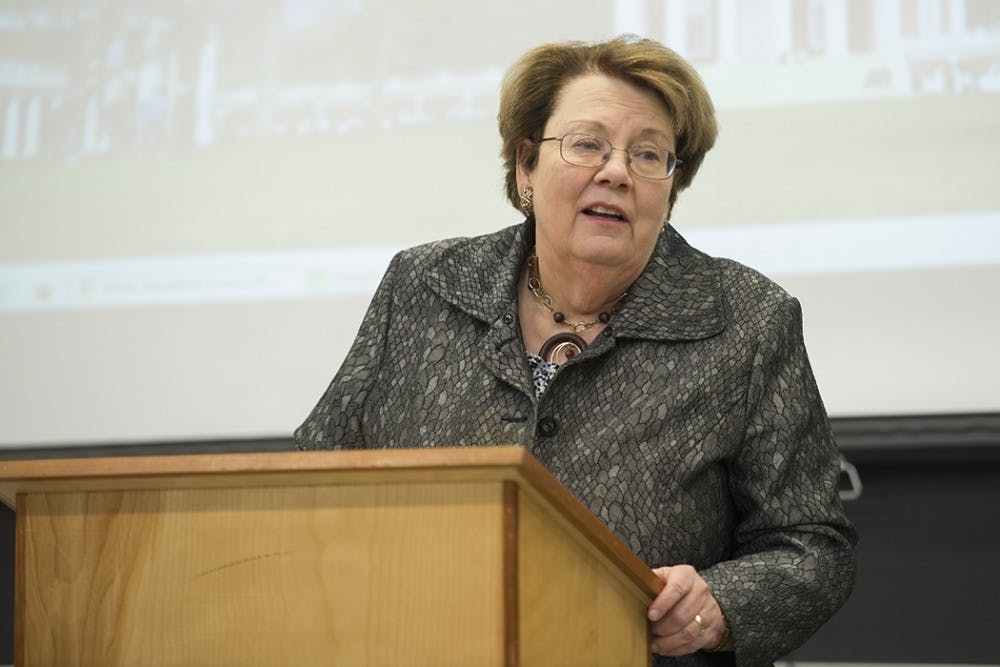The Board of Visitors announced last Friday the establishment of a search committee charged with recommending a candidate for the University’s ninth president. In an email to the University community, President Teresa Sullivan urged all stakeholders to participate in the search process, including students. Upcoming activities such as the bicentennial of the University’s charter and the launch of the Campaign for the University’s Third Century require strong transitional guidance. Therefore, students should make a concerted effort to engage with the presidential search committee and its proceedings.
Administrative policy concerns every member of the University community. Recent developments, such as tuition hikes, have catalyzed the student body to advocate for a more influential role in policy decisions such as the allocation of the Strategic Investment Fund and the University’s endowment. In addition, widespread student response to President Trump’s immigration ban has ensured the administration’s prioritization of student protection and safety.
Students should view the presidential search as a chance to directly influence long-term University policy. Although the Board of Visitors has already formed the special committee — which includes only two student representatives — there are several additional opportunities to contribute to the process. The committee plans to establish several subcommittees that will seek community input, as well as create a website where individuals can share their sentiments. Students will be able to advocate for specific qualities they wish to see in the University’s ninth president, starting with a meeting of the special committee scheduled Feb. 20 — an opportunity that must be taken seriously. Strong turnout during this nomination process will demonstrate student interest in engaging with the administration’s policy decisions, paving the way for further student involvement.
As the group most directly affected by policy changes, the student body has a responsibility to take advantage of every opportunity for input. Participation is essential for current first- and second-years, who will attend the University for at least one year under the new president. While individual students contribute important personal opinions, a collective action would carry far greater weight and provide deeper insight into students’ varying needs. Students should come together and hold the University accountable to its commitment to active student engagement.





